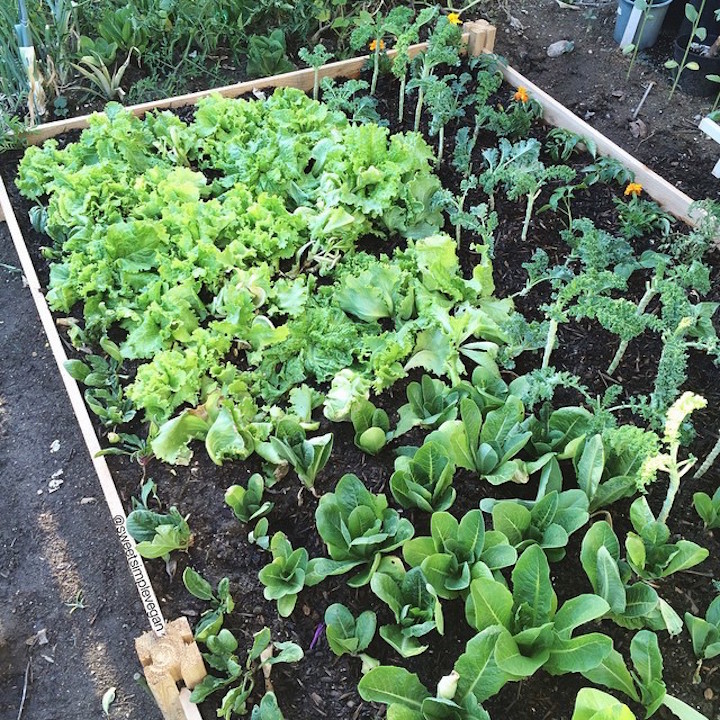
Today I am sharing with you a highly requested post on composting & my organic home garden. I hope that you find this useful and that it helps you start or improve your own garden!
What is compost?
Compost is defined as organic material that can be added to soil to help your plants grow. The material is decomposed and recycled as a fertilizer and soil amendment and is a key ingredient in organic farming. The resulting fertile soil also has far greater moisture retention, allowing you to use less water in your garden.
What are the benefits compost?
- Reduces the amount of waste that we dispose of >> especially if you eat a high raw or even just vegan diet. I have A LOT, and I mean A LOT, of scraps daily from my fruit meals, and practically fill up my CompoKeeper (info and discount below) every other day, and sometimes everyday.
- Enriches the soil and therefore reduces the need for chemical fertilizers (no thanks, miracle grow). helping retain moisture and suppress plant diseases and pests.
- Encourages the production and growth of beneficial bacteria and fungi
- These break down organic matter to create humus {the organic component of soil, formed by the decomposition of leaves and other plant material by soil microorganisms. It significantly influences the bulk density of soil and contributes to moisture and nutrient retention}.
- Reduces methane emissions from landfills and lowers your carbon footprint (as does veganism ;) Please check out Cowspiracy!).
- Surprise plants in your garden! >> From compost, my mother has grown a mango tree, avocado tree, papaya tree, fig trees (yes, two of them!), pumpkin, acorn squash, tomatoes, herbs, and peppers. What I mean from surprise is that from simply composting the scraps of herbs, fruits and vegetables, new plants have emerged without us intending to do so. The trees are still very small, but we plan on planting them in our backyard and that of friends and family to hopefully have large fruitful trees in the future :)
[caption id="attachment_7987" align="alignnone" width="720"]
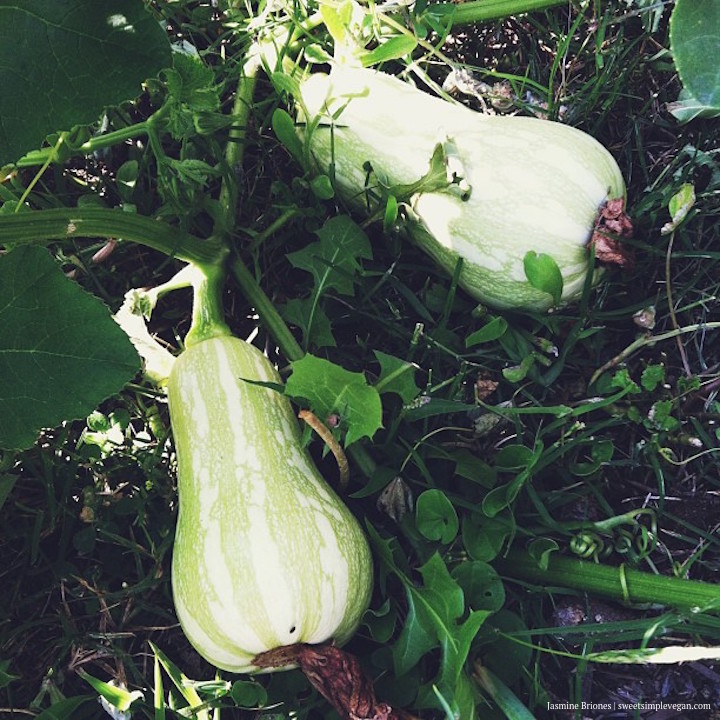
Butternut squash that grew from compost![/caption]
 This Sweet Raw Green Juice Mojito was actually what I contributed to my family's Easter celebration this year. They loved it, so I decided I would share it with you all here (this explains my ears in the photo, haha!).
This Sweet Raw Green Juice Mojito was actually what I contributed to my family's Easter celebration this year. They loved it, so I decided I would share it with you all here (this explains my ears in the photo, haha!).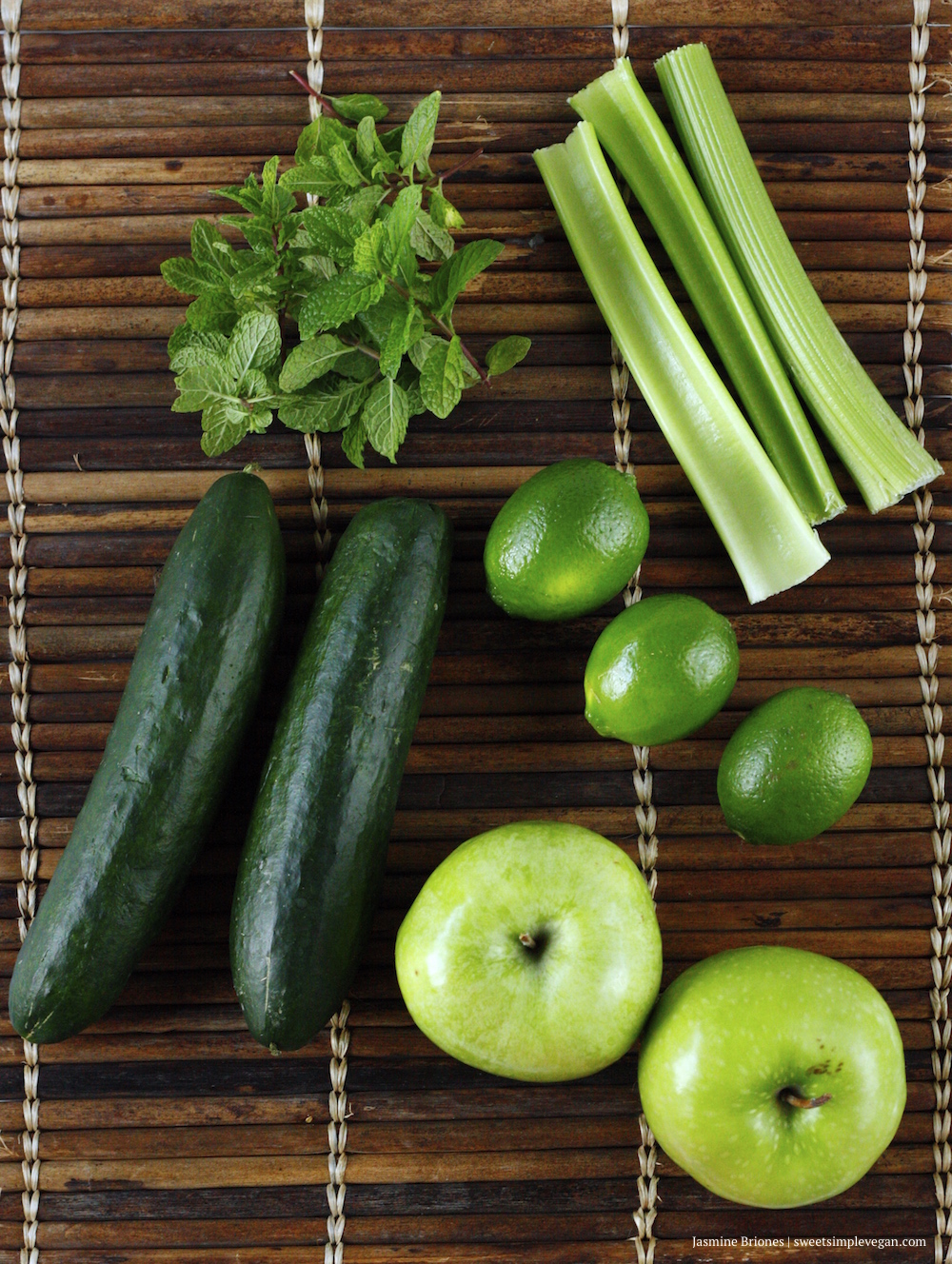












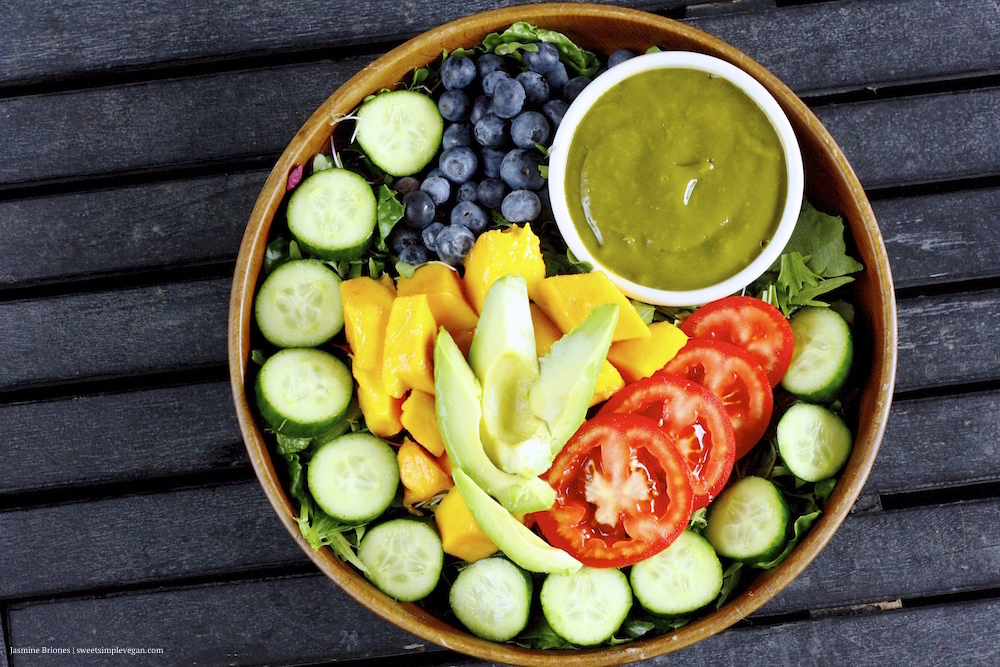 A quick and easy summer salad for you all to try out!
This is what a go-to dinner looks like for me, mixed fruit over a large bed of greens with a fruity dressing :) I do also at times eat a large serving of cooked veggies and rice, but summer has me craving something a bit more fresh!
A quick and easy summer salad for you all to try out!
This is what a go-to dinner looks like for me, mixed fruit over a large bed of greens with a fruity dressing :) I do also at times eat a large serving of cooked veggies and rice, but summer has me craving something a bit more fresh!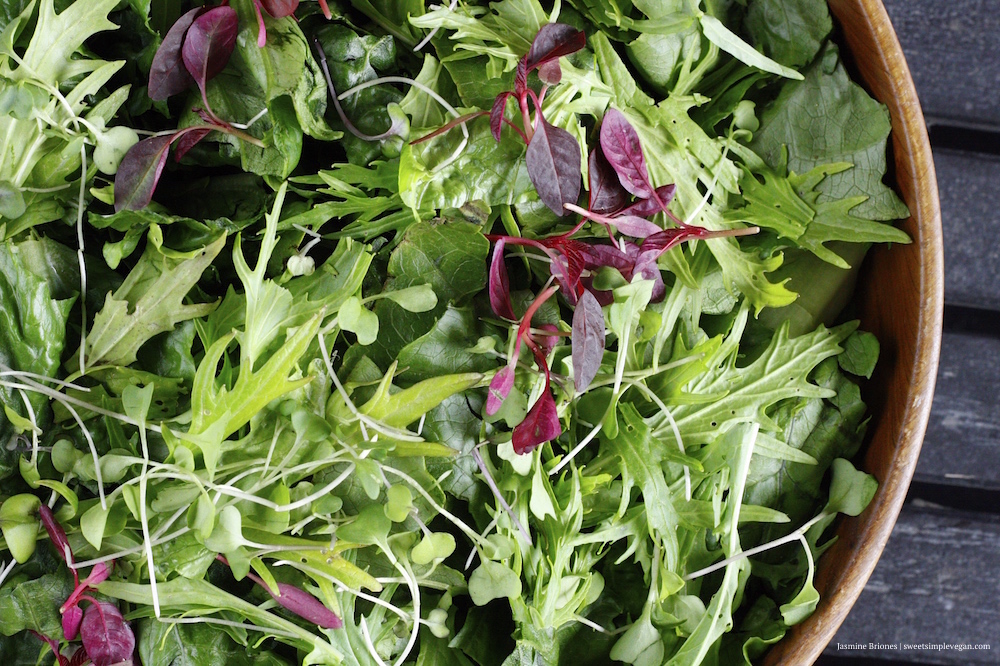

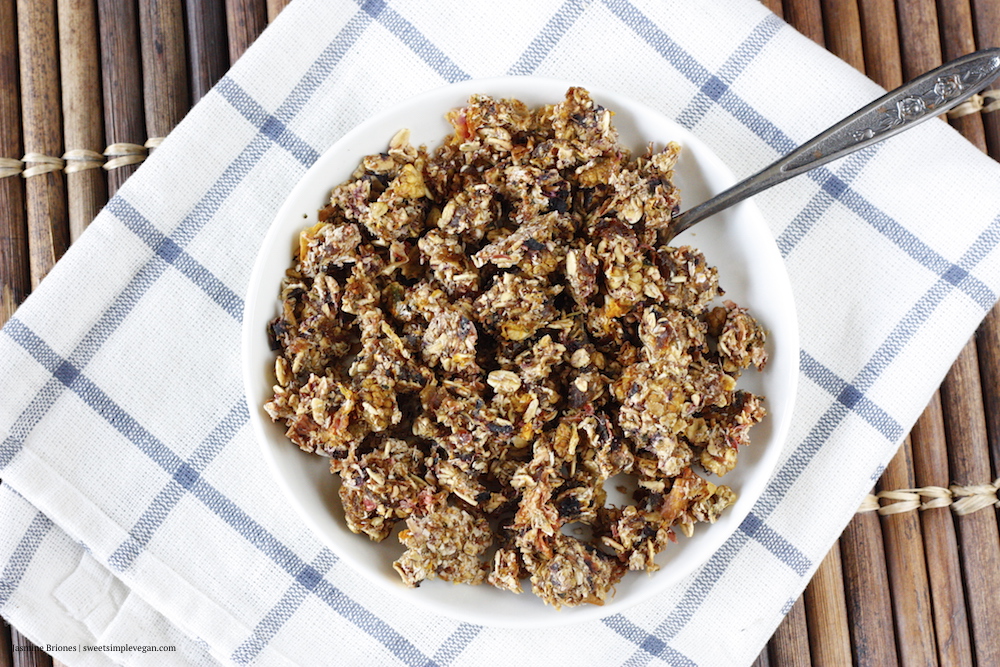 I love making fresh juice, but the question that always comes up is what the heck do I do with the juice pulp? I have cooked the (vegetable) pulp into soups, added it into cookies and crackers, and (when lazy) simply composted the pulp, but I wanted to try and create something new!
As I had posted a few weeks ago, my cousin and I went on a juicing spree for her and her family during the week, and I ended up saving all of the pulp from the three juices we made.
I love making fresh juice, but the question that always comes up is what the heck do I do with the juice pulp? I have cooked the (vegetable) pulp into soups, added it into cookies and crackers, and (when lazy) simply composted the pulp, but I wanted to try and create something new!
As I had posted a few weeks ago, my cousin and I went on a juicing spree for her and her family during the week, and I ended up saving all of the pulp from the three juices we made. 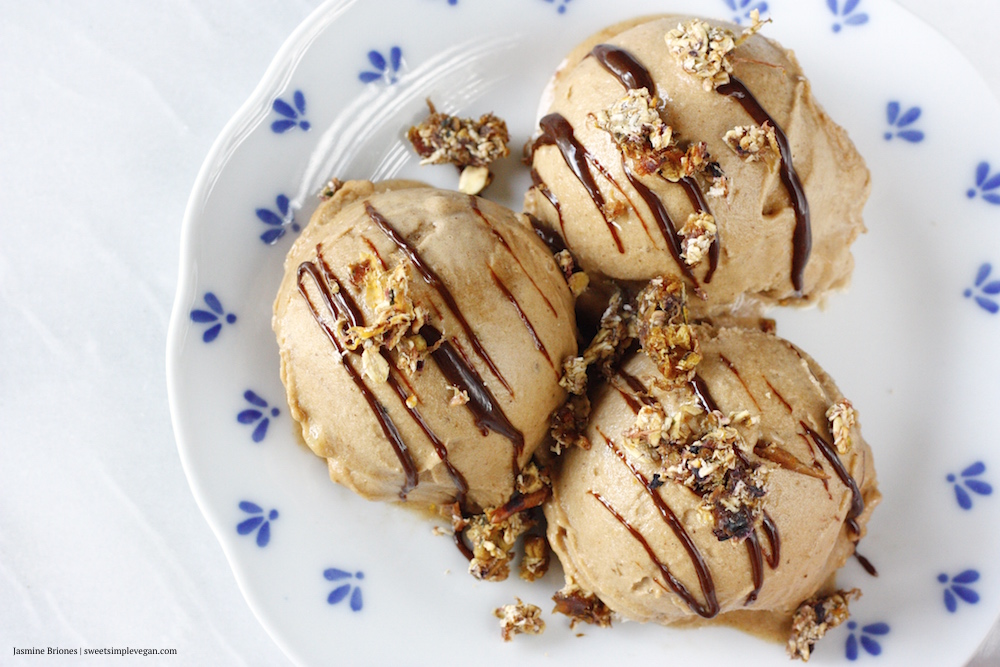


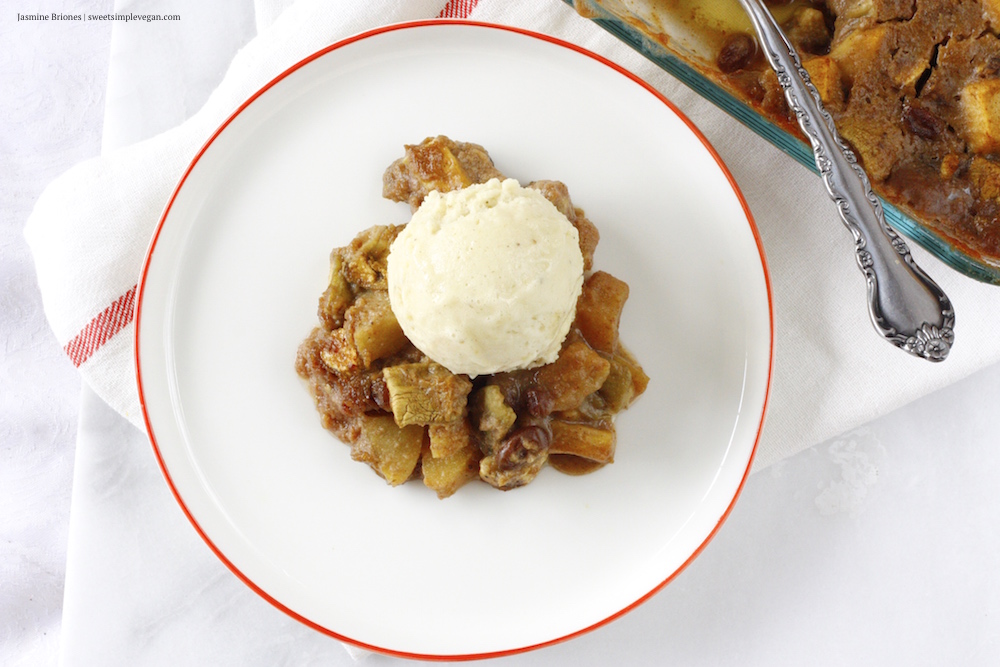 Reporting live from my kitchen in Los Angeles, I have
Reporting live from my kitchen in Los Angeles, I have 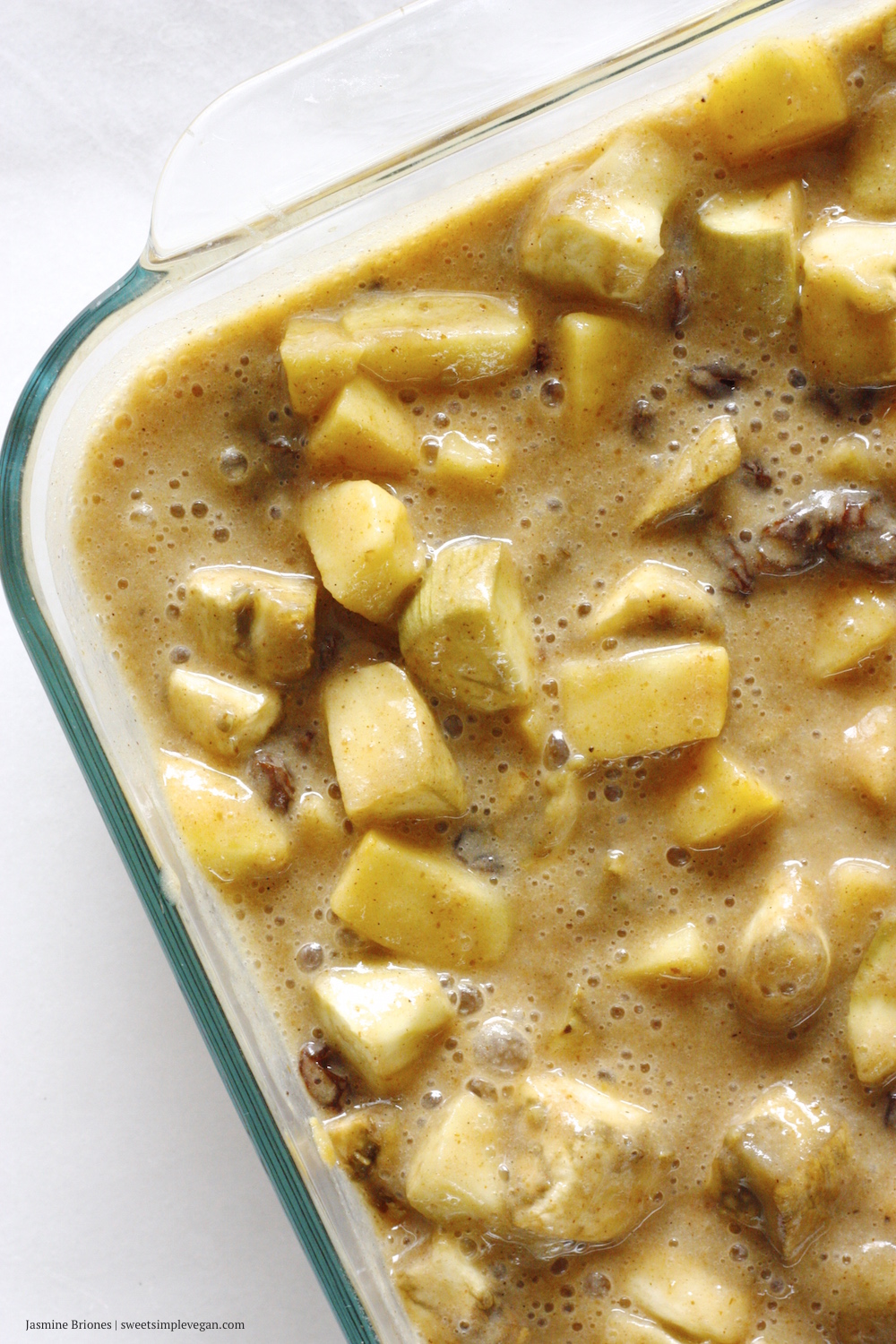 This isn't just any old bread pudding, this is bread pudding is....
This isn't just any old bread pudding, this is bread pudding is....

 Today I am sharing with you a highly requested post on composting & my organic home garden. I hope that you find this useful and that it helps you start or improve your own garden!
Today I am sharing with you a highly requested post on composting & my organic home garden. I hope that you find this useful and that it helps you start or improve your own garden!
 Butternut squash that grew from compost![/caption]
Butternut squash that grew from compost![/caption]